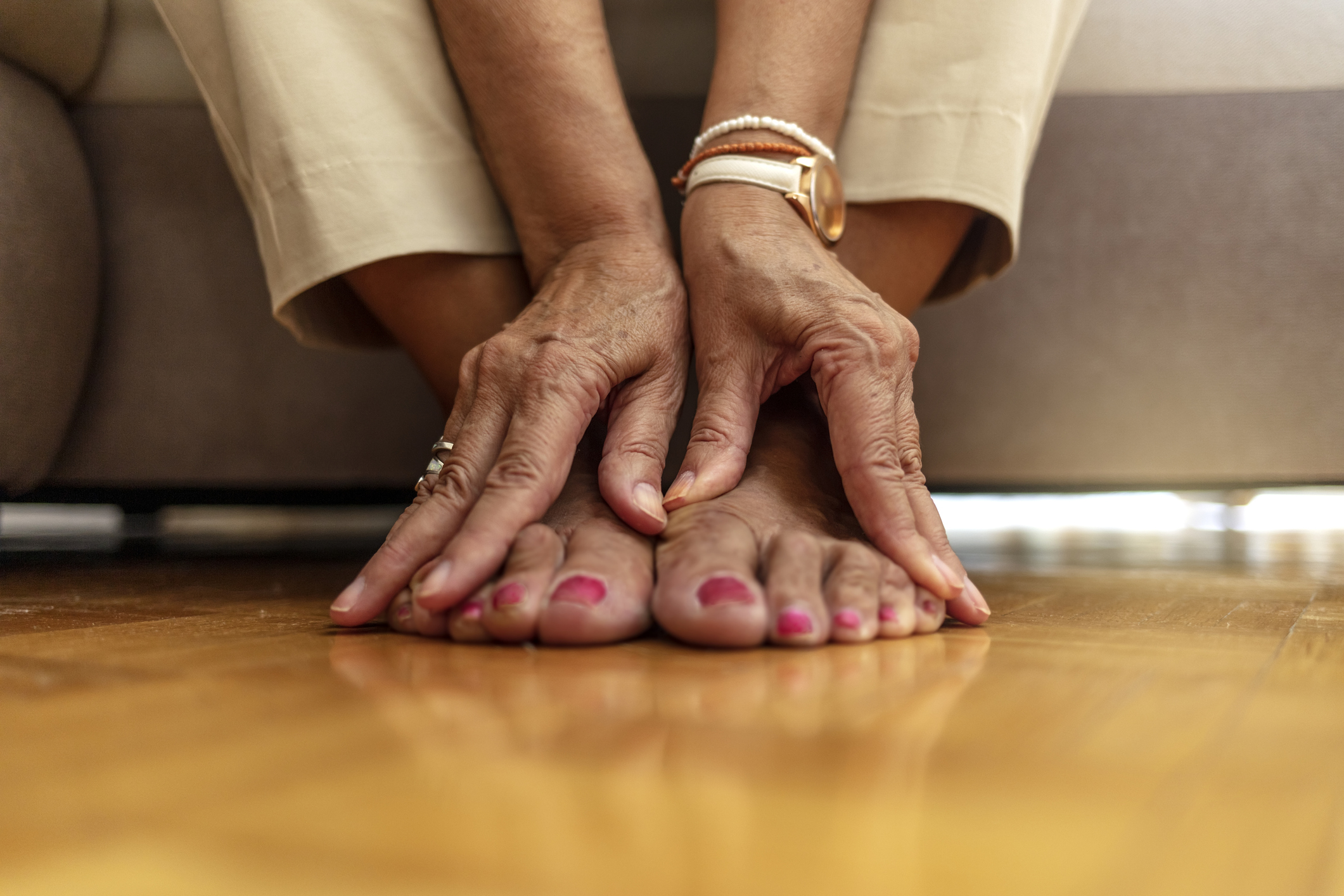
Foot health is very important for older adults, and our caregivers for the elderly in Denver, CO and nearby have tips to help.
It is challenging to put your best foot forward when pain accompanies every step. Foot problems are normal as we get older, which makes sense; there are so many delicate parts that carry the weight of our bodies. Not only that, but because they are so far from the heart, our feet are almost certainly not receiving as much oxygen-rich blood as required to remain healthy – especially if a health problem like diabetes restricts blood flow to the feet.
Still, many seniors choose to simply just grin (or grit their teeth) and bear it, instead of pursuing assistance for sore feet. This could lead to not only increasing discomfort, but compromised mobility and balance issues. Difficulties with your feet could be a warning sign for other health issues that call for diagnosis and treatment.
Watch for These Everyday Senior Foot Health Issues
Foot pain might result from:
- Dried-out skin. Throughout the cold winter season, dry skin is prevalent. On the feet, it can cause cracks that are not only painful, but set the stage for infection.
- Corns and calluses. These thick areas of dry skin on the feet frequently arise from the irritation from poorly fitting shoes.
- Bunions. In contrast to calluses and corns, bunions are the product of changes to bone structure. They may be very painful, often occurring on the outer part of the big toe joint.
- Hammertoes. Instead of all the toes lying flat, hammertoes are misshapen and point upward. You may discover a corn in conjunction with the deformed toe.
- Arthritis. Arthritis can affect any of our joints, including the feet, creating both mobility issues and pain.
- Plantar fasciitis. Plantar fasciitis is caused by bony growths formed when a ligament on the heel becomes irritated. Walking and even just standing can be extremely painful with this particular issue.
- Ingrown toenails. Toenails that grow at a different angle than normal may become ingrown in the flesh of the toe, often requiring a surgical procedure to remove.
- Fungal infections. Damp feet make a fantastic breeding ground for fungus that could develop between the toes.
Dr. Said Atway, clinical professor of podiatry at The Ohio State University Wexner Medical Center, sees seniors experiencing these kinds of problems on both ends of the spectrum: either highly active and developing problems from excessive use, as well as those with an inactive lifestyle experiencing limited blood circulation to the feet and poor all around health. He highlights the significance of proper footwear for older adults, who should keep from going barefoot or wearing shoes with too little support, such as flip flops.
To find the most comfortable, best-fitting footwear, he recommends:
- Shopping for shoes later in the day, as gravity causes the feet to expand a bit throughout the day
- Trying out shoes by walking around in them for at least 20 minutes; giving them a test run on a carpeted area at home should avoid any wear on the bottoms of the shoes, so they can be returned if they do not fit correctly
- Seeking the recommendation of a podiatrist on the best kind of shoe for a senior’s unique concerns
Keeping the feet clean, moisturized, and dry, and performing daily inspections to check for problems, is recommended for all older adults. An annual visit to the podiatrist can also help prevent problems.
Abby Senior Care’s caregivers for the elderly in Denver, CO and the nearby areas are here to help older adults kick up their heels and promote foot health in a variety of ways: guaranteeing good foot hygiene, providing transportation to search for footwear or to the podiatrist, taking walks together to improve blood circulation, and much more! Reach out to us at 303-699-8840 for a complimentary in-home assessment today.
